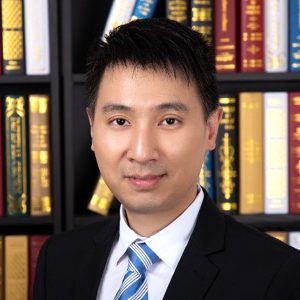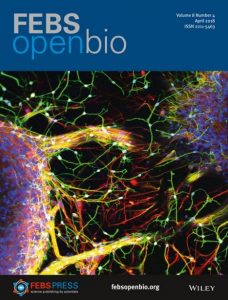
Assistant Professor at the School of Biomedical Sciences
Office: (852) 3943 9796
Email: cheunghh@cuhk.edu.hk
Address: Room 707A, 7/F, Lo Kwee-Seong Integrated Biomedical Science Building, Area 39, CUHK
SBS Website: https://www2.sbs.cuhk.edu.hk/en-gb/people/academic-staff/prof-cheung-hoi-hung-albert
Biography
Prof. CHEUNG Hoi Hung Albert (張凱鴻) obtained his Ph.D. degree from the CUHK and received his pre-doctoral and post-doctoral training at the National Institutes of Health of the US. In 2014, he joined the School of Biomedical Sciences and now a member of iTERM. He is interested in studying stem cell aging. He generated iPSC model of Werner syndrome (WS), a human genetic disorder displaying premature aging, for studying stem cell aging. WS patients experience a progressive decline in homeostatic and regenerative capacities, which is attributed to the accelerated degenerative changes in tissue-specific stem cells, stem cell niches and systemic cues that regulate stemness and self-renewal. Therefore, understanding the molecular pathways involved in stem cell aging is critical for developing new therapies for aging and age-related diseases. He is also interested in modeling psychiatric disorders using iPSC-derived neurons.

CO-FISH analysis reveals the premature loss of telomere ends in WS mesenchymal stem cells

Cover Illustration. Immunofluorescence for neuronal markers (MAP2, VGAT) at mature stages of cortical interneuron differentiation. See article on microRNA profiling during directed differentiation of cortical interneurons from human‐induced pluripotent stem cells by Tu et al. (502–512).
Research Interests
- Using iPSC model to study aging disorders such as Werner syndrome
- Understanding the molecular mechanism and genetic factors leading to stem cell aging
- Genomic engineering in iPSC/ESC using CRISPR/Cas9
Selected Publications
- Cao D*, Cheung HH*, Chan WY*. “Doxycycline masks the genuine effect of the doxycycline-inducible transgene by promoting dopaminergic neuron differentiation from human pluripotent stem cells.” Stem Cells Dev, 2019 Apr 25. (*co-correspondence)
- Lautrup S, Caponio D, Cheung HH, Piccoli C, Stevnsner T, Chan WY, Fang EF. “Studying werner syndrome to elucidate mechanisms and therapeutics of human aging and age-related diseases.” Biogerontology, 2019 Jan 21.
- Li L, Miu KK, Gu S, Cheung HH*, Chan WY*. “Comparison of multi-lineage diferentiation of hiPSCs reveals novel miRNAs that regulate lineage specification.” Sci Rep, 2018; 8(1):9630. (*co-correspondence)
- Tu J, Cao D, Li L, Cheung HH*, Chan WY*. “MicroRNA profiling during directed differentiation of cortical interneurons from human-induced pluripotent stem cells.” FEBS Open Bio, 2018; 8(4):502-512. (*co-correspondence)
- Liu X, Campanac E, Cheung HH, Ziats MN, Canterel-Thouennon L, Raygada M, Baxendale V, Pang AL, Yang L, Swedo S, Thurm A, Lee TL, Fung KP, Chan WY, Hoffman DA, Rennert OM. “Idiopathic autism: cellular and molecular phenotypes in pluripotent stem cell-derived neurons.” Mol Neurobiol, 2017; 54(6):4507-4523.
- Cheung HH, Yang Y, Lee TL, Rennert O, Chan WY. “Hypermethylation of genes in testicular embryonal carcinomas.” Br J Cancer, 2016; 114(2):230-236.
- Cheung HH*, Liu X, Canterel-Thouennon L, Li L, Edmonson C, Rennert OM*. “Telomerase protects werner syndrome lineage-specific stem cells from premature aging.” Stem Cell Reports, 2014; 2(4):534-546. (*co-correspondence)
- Cheung HH, Davis AJ, Lee TL, Pang AL, Nagrani S, Rennert OM, Chan WY. “Methylation of an intronic region regulates miR-199a in testicular tumor malignancy.” Oncogene, 2011; 30(31):3404-3415.
- Cheung HH, Lee TL, Davis AJ, Taft DH, Rennert OM, Chan WY. “Genome-wide DNA methylation profiling reveals novel epigenetically regulated genes and non-coding RNAs in human testicular cancer.” Br J Cancer, 2010; 102(2):419-427.
- Cheung HH, Lee TL, Rennert OM, Chan WY. “DNA methylation of cancer genome.” Birth Defects Res C Embryo Today, 2009; 87(4):335-350.
